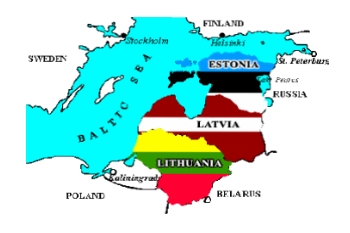Global Coffee Platform Showcases Farmer Income Potential In 11 Countries
 The Global Coffee Platform has released a new study that shows ways of improving the income of coffee farmers through improvements in yield, quality, training as well as empowerment of women farmers, as reported by Daily Coffee News.
The Global Coffee Platform has released a new study that shows ways of improving the income of coffee farmers through improvements in yield, quality, training as well as empowerment of women farmers, as reported by Daily Coffee News.
The study which was carried out in partnership with Technoserve covered 11 key coffee-growing countries in the world. This included including Brazil, Colombia, Ethiopia, Honduras, Indonesia, Kenya, Nicaragua, Peru, Tanzania, Uganda and Vietnam. The results of the study were aimed at identifying opportunities and provide solutions for an improved farm profitability and efficiency in the supply chain.
In summary, each country’s report describes the dominant farmer type as well as outlines its supply chain while highlighting the various opportunities to increase the farmers’ profitability at the country level. You can check out reports for each country here.
It should be noted that the study, according to them is to “initiate conversations between coffee origins, rather than to be an exhaustive study of farmer economics.”
According to the study, there is a great disparity in the knowledge of basic production indicators. For industry stakeholders to make informed decisions, they must have access to reliable production data on indicators like price, yield and costs.
Global Coffee Platform came out with four key areas where global coffee farmers’ income could be improved:
-
Yields: Yields can be increased within the next five years by improving agronomy practices like pruning, weeding, plant nutrition, pest management, farm rehabilitation and input optimization. An increase in yields in these 11 countries will add up to 2.5 million metric tonnes of yearly production by 2027. This will bring about $2 billion additional income to farmers annually. However, for yields to increase, farmers would have to bear additional costs, though cost of production per pound basis will reduce.
-
Training: The study proposes effective training programs offered by community trainers. This training should be hands-on instruction based and delivered monthly to small groups. If effectively carried out, there will be a lasting impact on farming practices as well as yields.
-
Quality Improvements: If quality improvement is done across six priority countries in the study, it will generate about $200 million additional income for farmers. This means arabica growers in high altitudes can get higher incomes through quality improvement.
-
Empower Women: The study shows that if women are given an increased control over income, they will spend more on their children’s health, education and nutrition. This means that income from coffee will benefit the whole family. In this light, the study states that an increase in the influence of a woman over coffee expenditure decisions will be of great benefit to the whole family. In this case, offering training to both men and women on financial literacy and coffee marketing is of prime importance.



